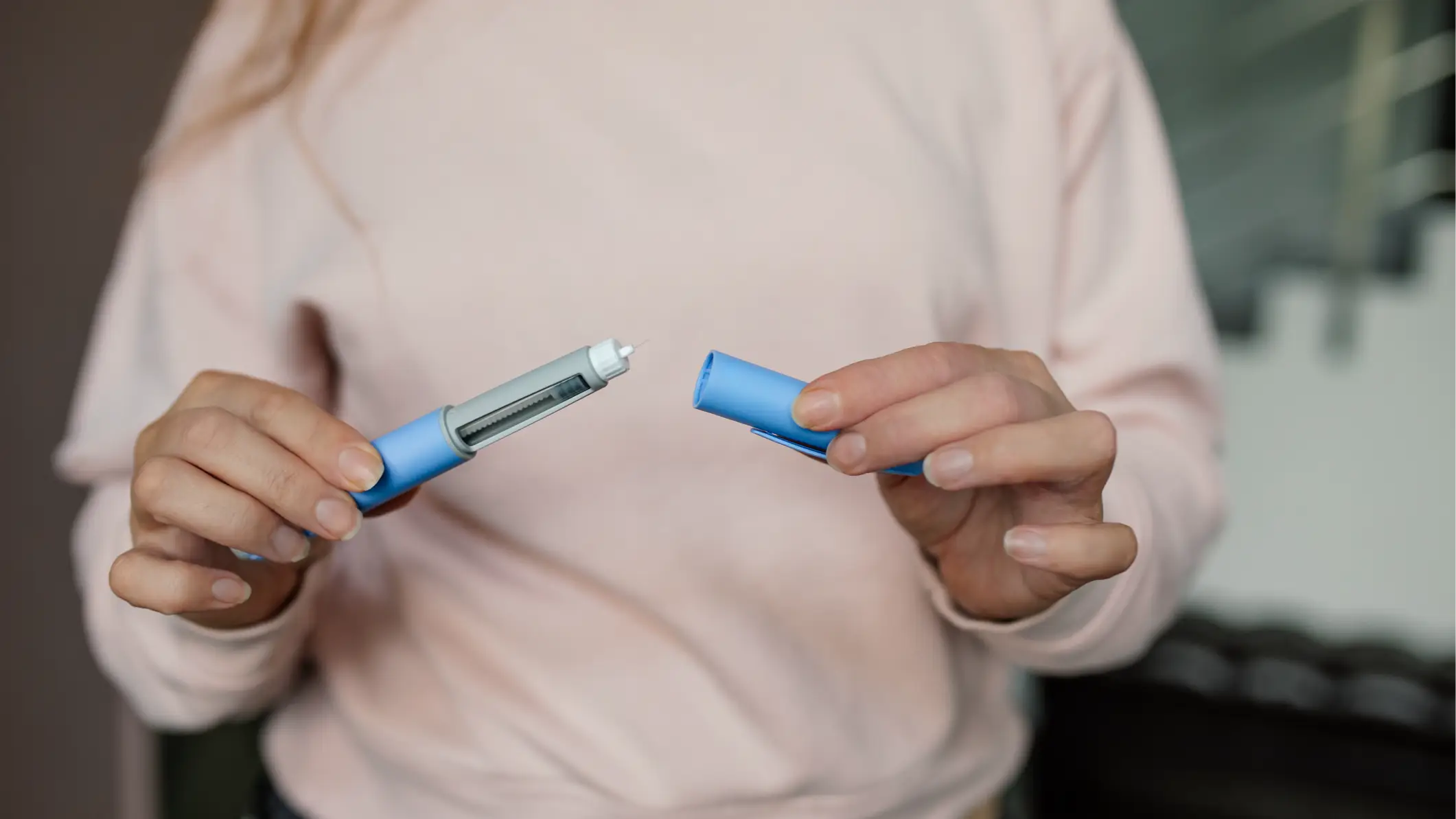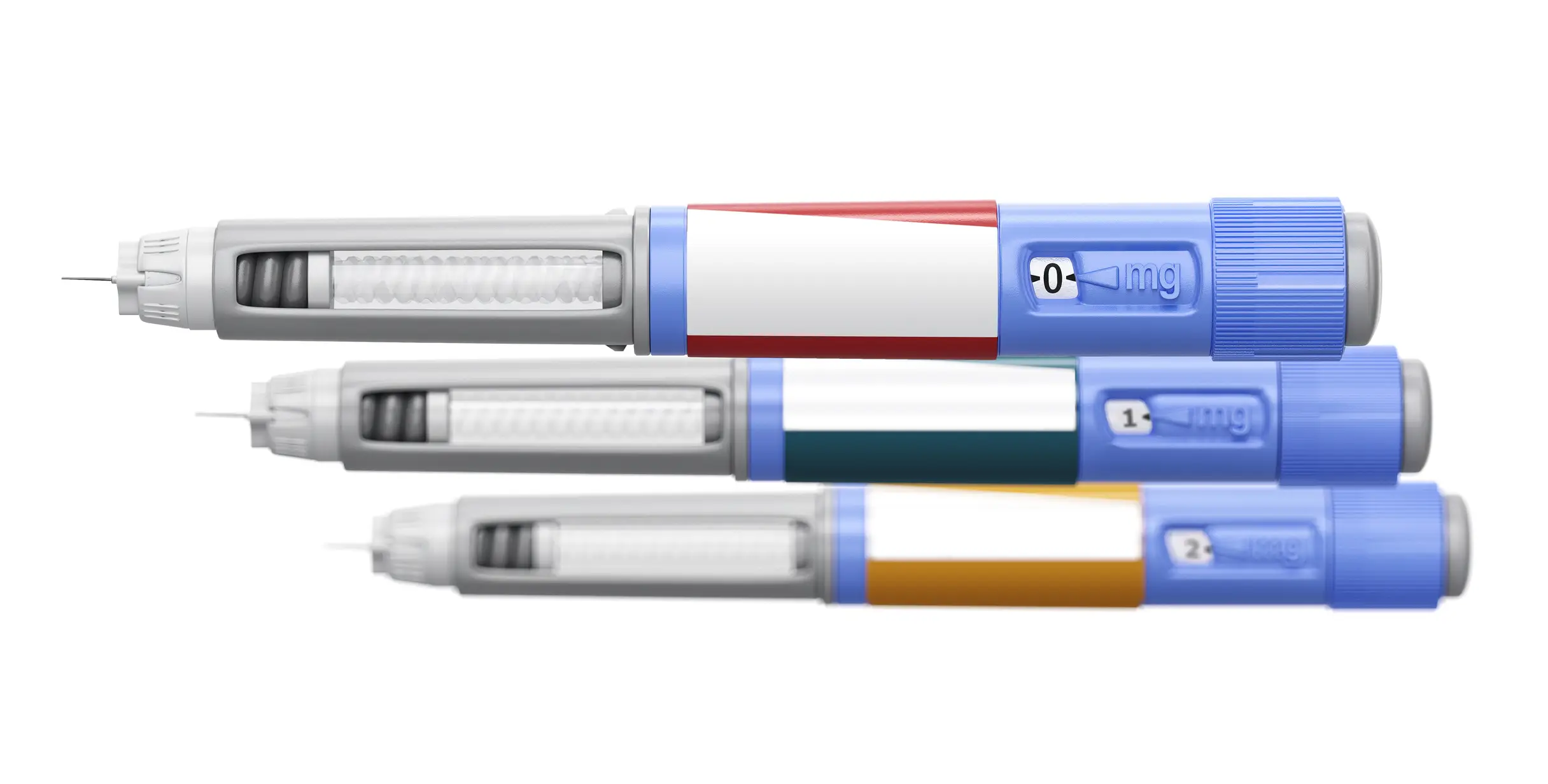
A study has revealed that a new weight-loss drug could beat other big players in the pharmaceutical world such as Wegovy.
An early-stage trial looking at the effectiveness of the new drug has yielded promising results, finding that the medication could outperform Wegovy, and it doesn't even have to be injected.
While the makers of Ozempic have stated that its GLP-1 medication was not made to be used as a weight loss drug, nor should it be prescribed as such, Mounjaro and Wegovy are slightly different even though all three have been used by those looking to shed the pounds.
But according to preliminary findings, those may not be the only options, as the health world moves towards non-injectable options for users too.
Advert
It could be as easy as taking a tablet, all to get the same effects you'd get from a dose of Wegovy.
Here's everything you need to know about what researchers have found.

What is Wegovy?
Wegovy is the brand name for a medication known as semaglutide, which is approved for use by the NHS.
It can be prescribed to help manage weight and obesity in people, though it can only be legally obtained via specialist weight management clinics.
Like Ozempic, the active ingredient is semaglutide, while Mounjaro uses something called tirzepatide.
All three mimic the GLP-1 hormone, which tricks your brain into believing that you're full while regulating blood sugar.
To get Wegovy on the NHS, you'll need to have a BMI of 27 or more, as well as a weight-related health condition such as type two diabetes.
But it looks like scientists may have found an alternative drug to shed the pounds - it's called Amycretin and it's manufactured by Novo Nordisk, the same company behind Ozempic.
What is amycretin and how does it work?
The medication controls your blood sugar and appetite by targeting the GLP-1 receptor as well as the amylin receptor.
It is believed that once released in tablet form, it would help to speed the rollout of weight-loss drugs on the NHS.
The trial found the drug did lower blood sugar levels and had side effects similar to other similar drugs, causing nausea and vomiting, though these were dealt with by the end of treatment.

What impact does amycretin have?
It's noted that research done was an early-stage trial, with numerous clinical trials needed before it would officially be rolled out in the UK, which could take years.
The current form of medication can be taken via injection or tablet.
125 adults tested the drug as an injection, while 144 people took a 100mg dose of amycretin as a tablet.
In findings which were outlined in The Times, it was found that patients who were administered higher doses of amycretin (60mg) as a weekly injection lost 20 percent of their bodyweight over the span of 36 weeks.
On the other hand, daily tablets helped users lose 13.1 percent of their bodyweight in just 12 weeks.
With results published in The Lancet, they were also presented at the American Diabetes Association’s Scientific Sessions in Chicago.
“Amycretin effectively lowered body weight and improved metabolic and glycaemic parameters in people [who are] overweight or [who are living with] obesity,” authors wrote.
“Longer studies with more participants are warranted for evaluation of the safety and efficacy of amycretin in individuals living with obesity and type 2 diabetes, and to optimise the dosing regimen.”
They added that their results supported the potential of overweight individuals taking amycretin once a week as a 'safe and tolerable' weight loss drug.

A different study was used as a comparison, which showed that patients being given Wegovy at higher doses also lost more weight, though it was monitored over a longer period.
It was found that those being given 7.2mg of Wegovy once a week lost 20.7 percent of their weight on average, in 72 weeks, while a third of participants lost 25 percent or more of their bodyweight.
What has Novo Nordisk said?
Sebnem Avsar Tuna, the general manager of NovoNordisk UK, stated: “[This] trial demonstrated that a higher dose of semaglutide, 7.2 mg, achieved greater weight loss than previously seen, with a comparable safety and tolerability profile to the 2.4 mg once-weekly dose of semaglutide.”
He called obesity a 'chronic disease', adding that semaglutide still has weight-loss potential for those with obesity.
"As leaders in obesity treatment, we are committed to developing treatments that fit the needs of people living with obesity," Tuna concluded.
LADbible has reached out to NovoNordisk UK for comment.